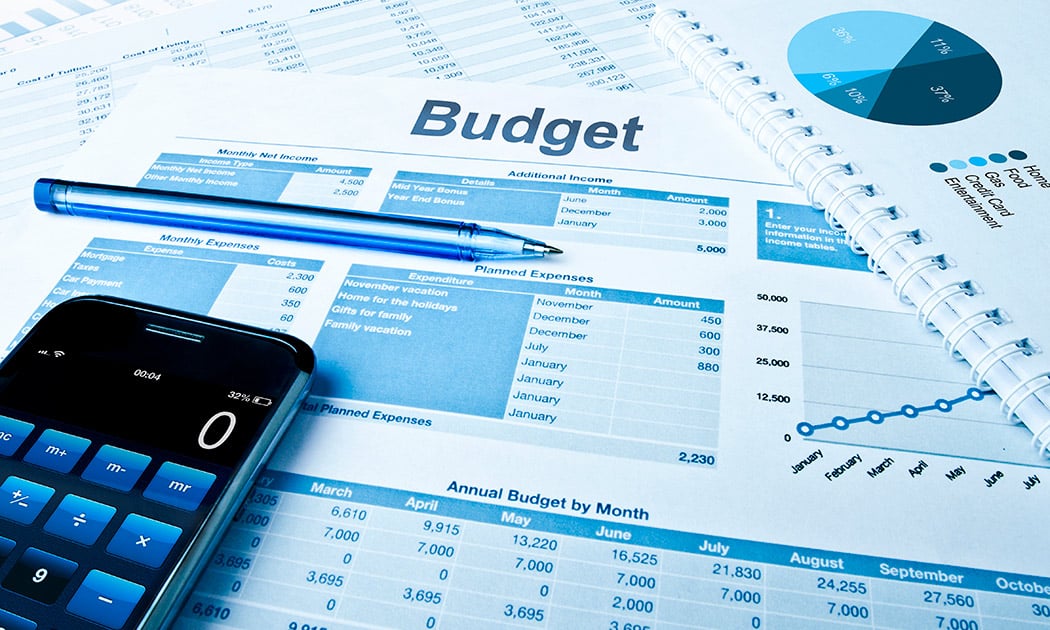The Payroll Blog
News, tips, and advice for small business owners
- Home
- Resources
- Payroll Blog
- How to Keep Personal and Business Finances Separate
How to Keep Personal and Business Finances Separate

When it comes to running a small business, it’s easy for personal and business finances to overlap. While it may seem harmless to keep the funds for both aspects of your life together, it’s best practice to keep your finances separate. Keep reading to learn what you need to know about the importance of separating your finances and how to effectively manage the separation.
The Differences Between Personal and Business Finances
Simply put, your personal finances include the income and expenses that are related to your household and personal life. Items would include rent or mortgage, groceries, utilities, hobbies, and personal savings or other investments. Business finances refer to the money and credit tied directly to your business. Financial items for your business would include the amount of revenue you bring in, costs associated with maintaining your business, paying employees, along with any investments specifically made by your business. If you run your small business out of your home, it can be difficult to know whether your expenses should be considered personal or business. This article from The Penny Hoarder is a good resource for knowing about home office tax deductions you should know about if you run your business from home.
If you’re not sure which category your expense falls into, ask yourself – does this benefit my business more than it benefits me? For example, a new printer/copier likely qualifies as a business expense, as you’ll likely use it primarily for work, whereas a new blender for the office kitchen to assist with your daily smoothie habit would likely qualify as a personal expense since it’s not likely to do much for your business returns.
Why You Should Separate Personal and Business Finances
Cash flow, or lack of cash flow, is one of the biggest struggles small business owners encounter. Keeping all of your cash tied up together can lead to even more confusion because it can be challenging to know what money goes where and how much is allocated towards what. It’s easy to think that you plenty saved up when everything is combined, but your bank account may be deceiving when you have an unexpected business expense pop up and you suddenly have to decide between paying off that expense and keeping the lights on at home.
While separating personal and business finances may seem daunting upfront, in the long run, it can simplify other scenarios, such as tax season. When preparing your annual tax return, you will need financial records and receipts for all business expenses. Keeping everything separate can make preparing for tax season smoother since you know exactly where that money went instead of trying to remember what was a personal expense and what actually went towards your business. Another benefit of keeping expenses separate involves your credit score. For example, if you were to run into some personal trouble, such as late payments or defaulting on a loan, keeping your finances separate could mean that the penalties you face personally won’t affect your business, or affect them as severely. The same applies if you were to face some financial challenges at your business.
Tips for Keeping Personal and Business Finances Separate
Thankfully we’ve got several tips that you can incorporate into your financial routine to keep your personal and business finances separated.
- Open a separate business bank account. One of the easiest ways to separate your personal and business expenses is to physically put your funds in different bank accounts. Extra props if you create the accounts at different banks to make transfers trickier to avoid. Having a specific business checking account, for example, can help you know exactly how much money you have available for business expenses. You could also opt for a business credit card to charge all expenses in one place.
- Choose a legal structure for your business. This is something that you may have already done when you first set up shop. There are several options to choose from when picking an entity, with sole proprietorships and limited liability corporations’ (LLC’s) being the most common for small business owners.
- Avoid personal guarantees on business loans. As previously mentioned, cash flow is a large problem for small business owners, which means there is a good chance you could find yourself needing to borrow some funds for your business. Think twice before offering a personal guarantee on a business loan. Life happens, and if for some reason the business can’t pay back the loan, you’ll be personably responsible, which can wreak havoc on your personal life.
Bottom Line
In general, money management and the separation of finances can be tricky. The good news is that there are plenty of resources available to small business owners to make the process easier. From business-specific loans to helpful online articles (like this one), you can learn a lot about best practices for keeping your finances separate. However, sometimes it's nice to have somebody to chat through things with and that's when having a trusted accountant or bookkeeper around can help you stick to your goals and ensure that your finances are staying in their respected buckets.
Related Blog Posts
View Our Plans and Pricing
Small Business Is Our Business.
This website contains articles posted for informational and educational value. SurePayroll is not responsible for information contained within any of these materials. Any opinions expressed within materials are not necessarily the opinion of, or supported by, SurePayroll. The information in these materials should not be considered legal or accounting advice, and it should not substitute for legal, accounting, and other professional advice where the facts and circumstances warrant. If you require legal or accounting advice or need other professional assistance, you should always consult your licensed attorney, accountant or other tax professional to discuss your particular facts, circumstances and business needs.



